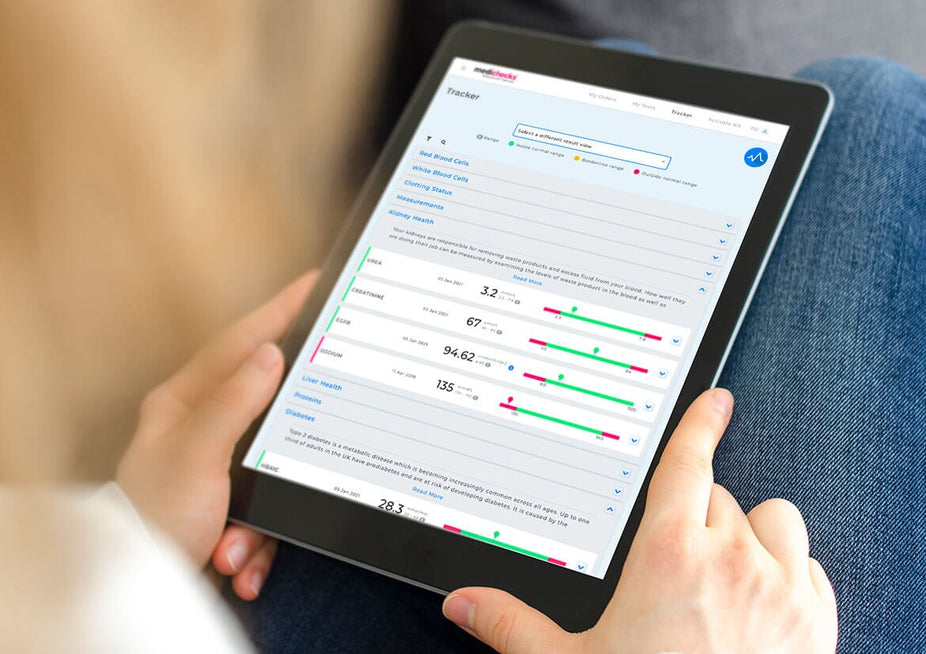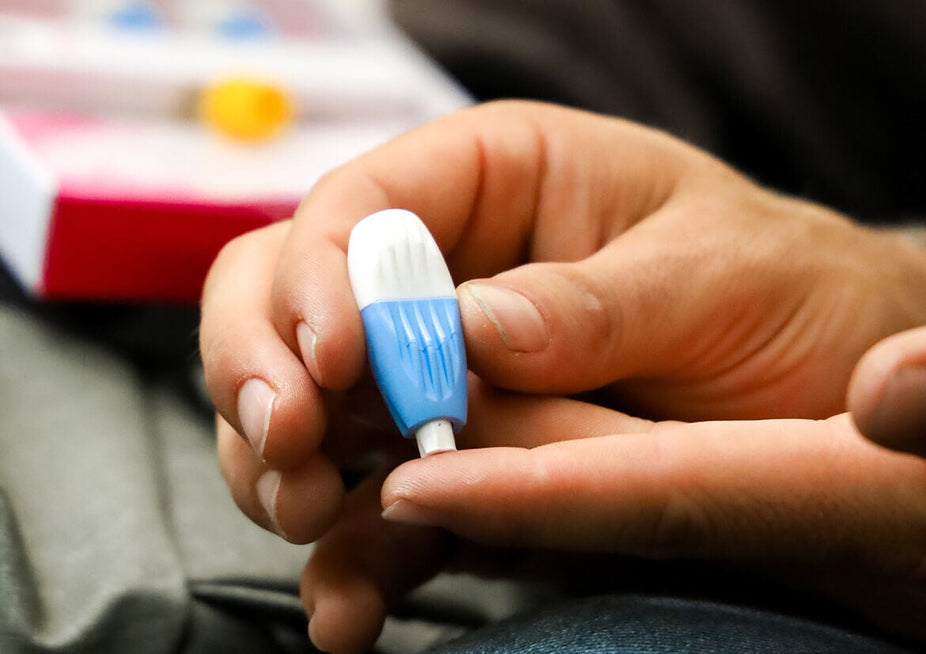How are blood testing laboratories regulated and monitored?
Read more about how blood testing laboratories are regulated and monitored.
At Medichecks, we partner with UKAS laboratories accredited by UKAS – trusted by the NHS and private clinics alike.
Learn more about laboratory testing and results and how blood testing laboratories are regulated and monitored.
- What is a blood-testing lab?
- Who regulates and monitors laboratories?
- Can blood test results vary?
- Are NHS blood tests more accurate than private blood tests?
- Can I trust a finger-prick blood test?
What is a blood-testing lab?
With a laboratory blood test, your sample is sent to be examined under a microscope or tested with chemicals.
There are over a hundred NHS hospitals and several private laboratories that provide pathology services, which is the study of blood and diseases, to private GPs and the NHS.
Doctors treating patients rely heavily on the test results provided by each pathology service. Test results provide diagnostic information which can influence treatment decisions, including medication prescriptions.
Laboratories must follow rigorous internal and external quality control measures for the accuracy, reliability, and comparability of test results.
Who regulates and monitors laboratories?
In the UK, the Department of Health and Social Care is responsible for the quality control and accreditation processes that laboratories must undergo to prove they produce accurate and reliable results.
UKAS is the national accreditation body for the United Kingdom to accredit organisations that provide services, including certification, testing, inspection, and calibration. UKAS is appointed by the government, which is why the Department of Health and Social Care is ultimately responsible for blood testing laboratories.
How do I know if a laboratory is UKAS accredited?
All UKAS-accredited laboratories are listed on the UKAS website. The laboratories that Medichecks uses are accredited by UKAS. This ensures that our blood test results are accurate and reliable.
How does a laboratory pass UKAS?
1. Have qualified staff
Regulations require that doctors and scientists working in laboratories are appropriately qualified:
- Doctors must be registered with the General Medical Council (GMC).
- Scientists must be registered with the Health and Care Professionals Council (HCPC).
2. Obtain UKAS accreditation
For quality and assurance, laboratories aim for UKAS accreditation.
UKAS ensures:
- Staff who process laboratory tests are qualified and competent.
- The processes and methodologies followed are robust and transparent.
- The equipment the laboratories use is safe and fit for its purpose.
How do laboratories gain UKAS accreditation?
The accreditation of medical laboratories in the UK is handled by UKAS to ISO standard 15189.
To gain accreditation, laboratories must participate in:
- Regular quality audits
- Clinical governance
- Accreditation inspections
During the audits and inspections, there must be a review of [1]:
- The qualifications, training, and experience of the staff
- Valid testing methods
- Suitable testing facilities
- Traceability of measurements to national standards
- Accurate recording and reporting procedures
Internal quality control (IQC) measures
Internal quality control should be performed at least daily. A patient’s blood sample will only be analysed once the machine has been correctly calibrated. To do this, a control sample (a sample with a known composition) is run through the machine to make sure it is producing accurate results.
External quality assessments (EQA) measures
All accredited laboratories must participate in an external quality assurance scheme (EQAs) for all the tests they provide. These schemes are undertaken on a national basis, i.e. NEQAS (National EQA Scheme) or WEQAS (Wales EQA Scheme). The EQA schemes send out samples to all laboratories either fortnightly or monthly, depending on the tests being checked. These samples contain known amounts of the specific test that is being assessed. The laboratories being assessed do not know the true target value and have to measure these samples and report the results to the EQA scheme. If these results are not within acceptable limits, the laboratory will receive a warning or a poor performance letter. If the problem is not rectified, the laboratory may be required to cease testing for the marker in question by UKAS.
UKAS inspects accredited laboratories at regular intervals. If any laboratories do not meet the criteria, it is expected to rectify the issues and provide evidence that it has been fixed, within three months of it being raised.
Between the main inspections, laboratories are also subject to surveillance visits to ensure all quality measures are met. When auditing and analysing blood tests, there needs to be a medical buffer in place for the variability in blood test results, as blood results differ slightly every time they’re tested.
Can blood test results vary?
Blood test results can vary slightly. If you were to run a sample twice on the same analyser, the results may be very close but not always the same.
For example, when measuring sodium levels, there may be a variation of 1.5%. So, if the result given is 140, you have to allow 1.5% either way, meaning the true result may be anywhere between 137.9 and 142.1 – but this is not considered to be clinically significant. For some tests, like hormone levels, the variation can be much higher, such as 3-10%.
Medical factors that can influence blood results
Many factors can cause variation in blood test results. They can be divided into three main categories: biological variation, pre-analytical variation, and analytical variation.
Biological variation (intra-individual variation)
In any individual, there are biological (diurnal) cycles that can affect blood results. These cycles mean that some biomarkers change depending on the time of day.
For example, cortisol levels in the blood are at their highest between 8 am and 9 am, but very low at midnight, meaning your blood tests would show very different results if you were to test at these different times.
Pre-analytical variation
These are variations or changes that can occur before a sample is tested.
Circumstances that can cause pre-analytical variation include:
- A delay in reaching the laboratory
- Being left in a hot or cold environment during transport
- The volume of blood collected
Usually, these changes are minor and will not impact treatment.
Analytical imprecision
Similar to how clothes sizing differs from store to store, all laboratory analysers show some kind of variation termed analytical imprecision. However, this is regulated under quality control with a variation buffer known as a coefficient variation – which measures the precision of the sample. Coefficient variation is kept to a minimum.
Are NHS tests more accurate than private blood tests?
All accredited laboratories are subject to the same strict rules and quality control procedures. Therefore, NHS blood tests are not inherently more accurate than private tests, or vice versa.
Very often, NHS laboratories use the same analysers and are part of the same quality assurance schemes as the laboratories used by Medichecks.
Can I trust a finger-prick blood test?
It’s a common misconception that venous samples are more accurate than finger-prick blood testing.
Finger-prick samples are proven to be as accurate as venous samples, provided they have been collected correctly. The benefits of this method are that it’s quick, convenient, and can be carried out at home.
There are some tests where a venous sample collection is required as a larger sample is needed to test the biomarkers.






